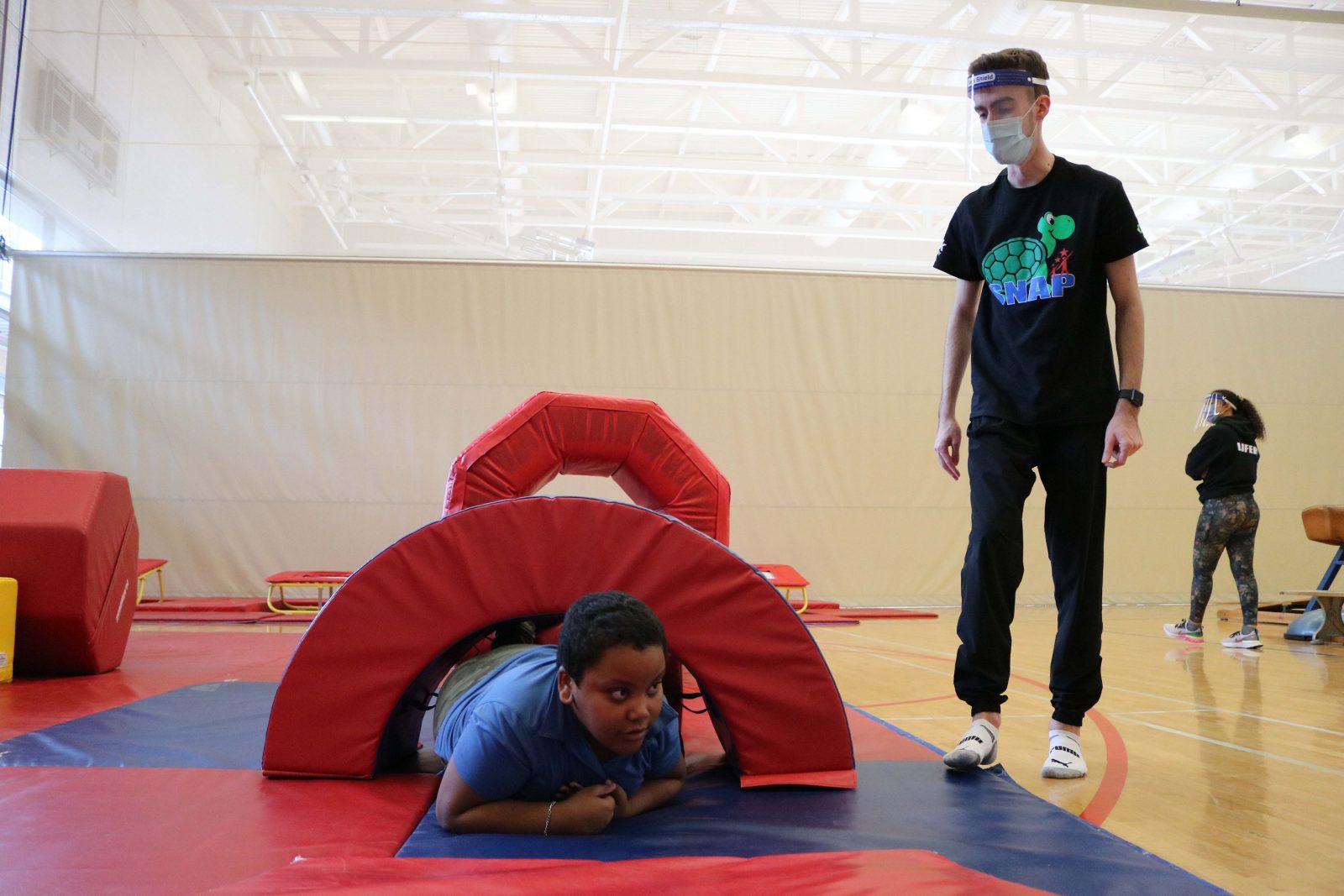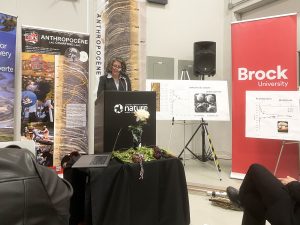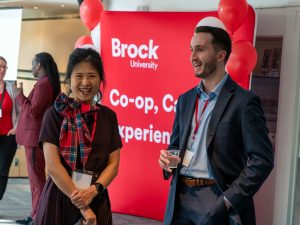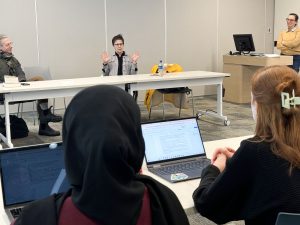 Brock Medical Sciences student and SNAP co-ordinator Mitchell Ianiero engages elementary school participant Israel in adapted exercises similar to what was demonstrated in the interactive sessions at the North American Federation of Adapted Physical Activity Symposium hosted by the Brock-Niagara Centre of Excellence in Inclusive and Adaptive Physical Activity (CAPA), in partnership with Brock’s Faculty of Applied Health Sciences from Tuesday, Oct. 11 to Thursday, Oct. 13.
Brock Medical Sciences student and SNAP co-ordinator Mitchell Ianiero engages elementary school participant Israel in adapted exercises similar to what was demonstrated in the interactive sessions at the North American Federation of Adapted Physical Activity Symposium hosted by the Brock-Niagara Centre of Excellence in Inclusive and Adaptive Physical Activity (CAPA), in partnership with Brock’s Faculty of Applied Health Sciences from Tuesday, Oct. 11 to Thursday, Oct. 13.At the height of the COVID-19 pandemic, inequities that too often remain invisible in mainstream society began to surface. At the same time, it was becoming apparent marginalized individuals were at further risk of falling through systemic cracks.
When the formation of the Brock-Niagara Centre of Excellence in Inclusive and Adaptive Physical Activity (CAPA) was approved in December 2020, its Director Maureen Connolly saw it as a chance to ensure programs would still be available when restrictions cleared.
“While the creation of a research centre had been in the works for some time, it was certainly timely that we could begin to move ahead in the midst of COVID,” Connolly says. “We knew we had to be adaptable in different ways because within the disability community there was a wide range of challenges impacting how people were thriving.”
The purpose of CAPA is to promote and enhance awareness and development of inclusive and adaptive physical activity programming and to engage in research, scholarly activity and knowledge translation about inclusive and adaptive physical activity and its associated socio-cultural affordances and constraints.
For two years, CAPA has been providing authentically inclusive programs, workshops, courses, research projects and services to the Niagara community. It has also enabled many of Brock’s adaptive physical activity programs and services offered over the past 25 years — such as Supporting Neurodiversity through Adaptive Programming (SNAP), Saturday SNAP, Autism Spectrum Disorder Summer Movement Camp, and Side by Side, among others — to continue to respond to community needs.
“Everything SNAP, the programs and the research, has always been about responding to community need,” Connolly says. “Being a research centre allows us to further tap into our participants’ and community members’ life experiences and insider knowledge.”
As current and future research projects are designed, a goal of CAPA is to represent the day-to-day engagements disabled people have with physical activity both accurately and responsibly, and to provide analysis and interpretations that will inform systemic change and authentic community support.
“Disabled people are expert citizens and their well-being and collective empowerment is at the heart of our research and service commitments,” Connolly says.
Among these service commitments, CAPA, in partnership with Brock’s Faculty of Applied Health Sciences, successfully hosted the North American Federation of Adapted Physical Activity Symposium (NAFAPA), an impactful biennial event held in October that brought together scholars and practitioners in areas of inclusive and adaptive physical activity, kinesiology, physical education and disability studies.
Planning for NAFAPA initially started in 2018, but due to the COVID-19 pandemic, the event was postponed. As restrictions began to lift in 2021, CAPA was now well positioned to take the lead.
“We are always in consultation with disabled populations,” says Brock-NAFAPA Planning Committee member Elyse Lappano, who prior to October 31, worked as the Department of Kinesiology’s Experiential Education Co-ordinator, Inclusive and Adaptive Physical Activity for eight years.
Now transitioned to the role of Manager, Student Information and Services for the Brock Registrar’s Office, Lappano explains, “In this marginalized community, a lot of distress was experienced during COVID because the avenues in which this population was used to expressing their thoughts and feelings were no longer accessible or available in many cases.”
When CAPA established in 2020, a Community Advisory Council (CAC) was formalized. This created a space for members to become embedded in the Centre structure and become more deeply involved in the planning and facilitation of the conference.
“For many, NAFAPA was viewed as part of the grand reopening,” says Lappano. “We received a lot of positive feedback for how truly inclusive this conference was in concrete, authentic ways.”
In response to those who say, it is very difficult and too costly to make events accessible, Lappano says, “The fact we pulled something together that was accessible, that made the disability community visible and had them participating in ways that were meaningful has showed the broader community they too can make events inclusive and accessible. We did it by embedding an inclusive lens from the start. It is only when accessibility is an afterthought that it becomes expensive and tokenistic.”
CAPA regularly hosts webinars that bring together community leaders and researchers to discuss current and emerging topics.
For more information, visit Brock’s CAPA website.









